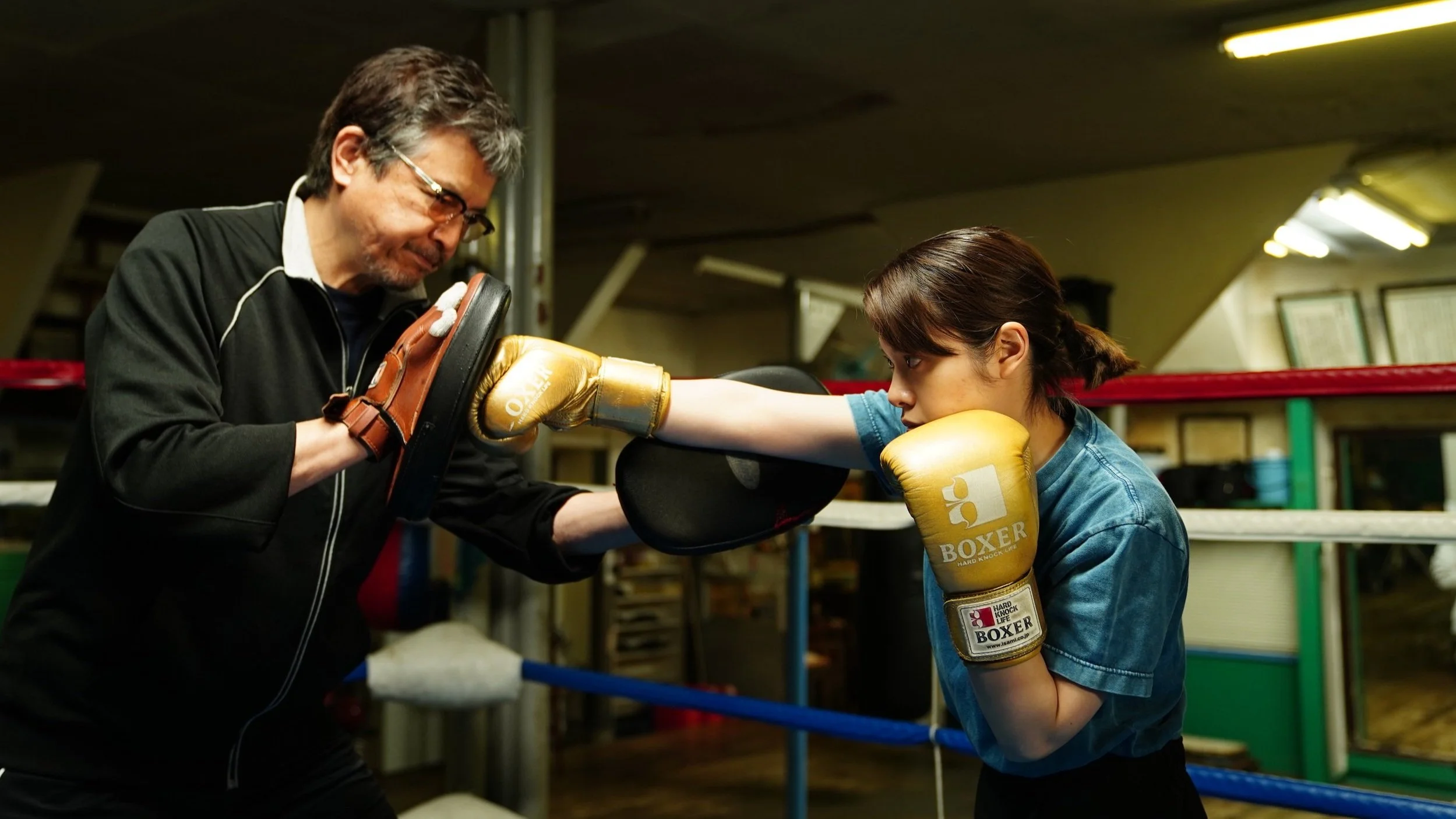Small, Slow But Steady
The true story of a deaf boxer in Japan plays like a homage to Yasujirō Ozu.
It is no great surprise that this film is an award-winner and has indeed carried off prizes for best film, best actress and best supporting actor. Nevertheless, it is probably not an easy sell. I take that view based on two factors: first, there is the fact that, however well-known in Japan, the names of those involved mean little here and, secondly, the story being told, one inspired by real events, combines two contrasted elements. Sometimes a mix of that kind can add richness to a film thereby increasing its appeal, but here audiences drawn to one aspect of it may well be put off by the other.
Small, Slow But Steady is the story of a young woman named Keiko who lives in the suburbs of Tokyo and who sets out to become a professional boxer aided by the support of a gym owner, Mr Sasaki. As such this is a tale most likely to be regarded as a welcome prospect by those who favour boxing dramas and, if few such films feature a female protagonist, this work can be said to have a precursor in Clint Eastwood's acclaimed 2004 drama Million Dollar Baby in which he starred with Hilary Swank. But in this case the writer/director Shô Miyake is basing his material on the real-life story of Keiko Ogasawara who took up a career in boxing despite having been deaf since birth. Consequently, some audiences will be attracted by this film because it pays tribute to somebody disadvantaged in this way but may yet be discouraged from seeing it due to the extensive role that boxing has in the story. Furthermore, such doubts can work the other way too. In telling Keiko's story Miyake has chosen an approach which has already led some critics to compare Small, Slow But Steady to the work of Yasujirō Ozu, that great chronicler of everyday family live in Japan. It's an approach which leads to only a very limited time being given to showing actual boxing bouts so those looking to this work as a sports drama may well feel undersold.
As my comments indicate, I can understand how easily certain viewers could be disappointed by what is on offer, but there is no doubt at all about the quality of what is to be found here. The film’s acting awards were gained by Yukino Kishii who plays Keiko and by Tomokazu Miura who portrays her mentor whose gym is said to be the oldest in Tokyo. It's a family establishment which is at risk of closure, partly due to Mr Sasaki’s failing health but also because the events depicted take place when Covid is affecting business. Both players are admirably cast while subsidiary characters, all well played, include Keiko’s mother and brother (Hiroko Nakajima and Himi Satô), two trainers at the gym (Masaki Miura and Shinichirô Matsuura) and Mr Sasaki’s wife (Nobuko Sendô).
Instead of seeking to build up the dramatic potential of the story in any overt way, Miyake eschews any suggestion of sentimentality and quietly seeks to immerse us in Keiko’s world. She herself rarely speaks but Kishii’s face is very expressive. That is a great asset here and it could be said to be crucial to the film’s concluding moments. The comparison with Ozu is relevant in various ways. The sense of ordinary lives authentically caught is close to his approach and the inclusion of scenes involving trains (initially just heard but later seen) could even be a homage to the frequency of such touches in his films. Furthermore, just as Ozu rarely used camera movement, so too Miyake favours static shots. In this instance any sense of confinement inherent in that adds to our sense of Keiko’s circumscribed existence. Since she cannot hear, dialogue in the film is cut down and when she communicates with her family sign language is used. It is suitably written up or subtitled in the standard way for those unfamiliar with it. We do have natural sounds which enhance the feeling of our being present and reality is also increased by the elimination of any music score. It all comes together to create a deeply sympathetic and well-judged work in which the approach feels entirely apt. For the reasons indicated, some viewers may choose to ignore the film, but if you can adjust to its terms it is undoubtedly worthwhile.
Original title: Keiko, me wo sumasete.
MANSEL STIMPSON
Cast: Yukino Kishii, Masaki Miura, Shinichirô Matsuura, Himi Satô, Hiroko Nakajima, Nobuko Sendô, Tomokazu Miura, Shinsuke Kato, Yuko Nakamura, Makiko Watanabe.
Dir Shô Miyake, Pro Koichiro Fukushima, Masahiro Handa, Keisuke Konishi and Shunsuke Koga., Screenplay Shô Miyake and Masaaki Sakai, from the book Makenaide! by Keiko Ogasawara, Ph Tsukinaga Yûta, Pro Des Inque Shimpei, Ed Keiko Okawa, Music Nami Shinozuka.
Nagoya Broadcasting Network/Comme des Cinémas/Happinet Phantom Studios-Blue Finch Releasing.
99 mins. Japan/France. 2022. UK Rel: 30 June 2023. Cert. 12A.


